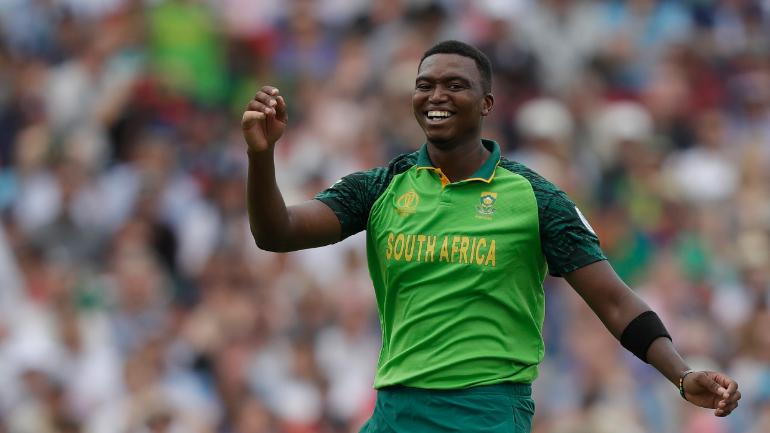On Friday, former Windies skipper, Daren Sammy has come out in support of South African fast bowler, Lungi Ngidi as the latter has been criticized by former cricketers as he took a stand for the Black Lives Matter (BLM) movement. Ngidi had asserted that the racism issue is “something that needs to be taken very seriously and like the rest of the world is doing, make the stand.

However, Ngidi’s comments didn’t went down well for former South African wicketkeeper Rudi Steyn, who recently went on to share an article on his Facebook page with Boeta Dippenaar and Pat Symcox expressing their criticism in the comments section.
ALSO READ: The Day When Bad 15 Minutes Cost Team India The Semi-final
Tweeting his support for Lungi Ngidi, Sammy stated the fact that some past players have an issue with Lungi taking a stand for the #blacklivesmatter movement is actually the reason why the World needs a movement like that.
The fact that some past players have an issue with @NgidiLungi stance on #blacklivesmatter movement is actually the reason why we are still here today saying black lives matter. Smfh 😡😡😡#standupbrother we here with u ✊🏿✊🏿✊🏿✊🏿✊🏿
— Daren Sammy (@darensammy88) July 9, 2020
Steyn’s post read, “I believe the Proteas should make a stand against racism, but if they stand up for ‘Black Lives Matter’ while ignoring the way white farmers are daily being ‘slaughtered’ like animals, they have lost my vote.”
Dippenaar, who played 38 Tests and 107 ODIs for the Proteas between 1999 and 2007, said: “I am afraid to say “Black Lives Matter” have become nothing more than a leftist political movement. The ‘Black Lives Matter’ movement gathered momentum following the death of an African-American man named George Floyd when a police officer pressed his knee on his neck.”
ALSO READ: BCCI Feels Dream 11 Is Linked With The Fake T20 League
The incident triggered protests such as Michael Holding, Jason Holder, Darren Sammy and many players from around the world have now started talking about racism. South Africa has a long history of racism where the apartheid system ended in 1994.
